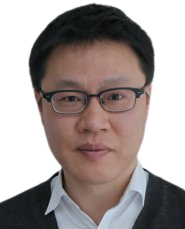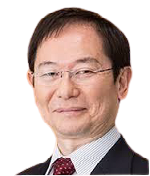 Prof. Guanghao Sun, University of Electro-Communications,
Tokyo, Japan
Prof. Guanghao Sun, University of Electro-Communications,
Tokyo, JapanBiography: Guanghao Sun received the B.S. degree in Medical Engineering from Chiba University, Japan, in 2011. He completed the Frontier Science Course supported by Ministry of Education, Culture, Sports, Science & Technology (MEXT) in Japan, in 2011. His M.S. and Ph.D. degrees in System Design Engineering were received from Tokyo Metropolitan University, Tokyo, Japan, in 2013 and 2015, respectively. From April 2013 to September 2015, he was a Research Fellow of the Japan Society for the Promotion of Science (JSPS). In October 2015, he joined The University of Electro-Communications, Tokyo, Japan, as an Assistant Professor, where he became an Associate Professor in October 2020. He is a Senior Member of IEEE Engineering in Medicine & Biology Society (IEEE-EMBS) and Japanese Society for Medical and Biological Engineering (JSMBE). He received 2013 BES-SEC Design Silver Award for design a multiple vital-signs based infection screening system, and 2014 Chinese Government Award for Outstanding Self-financed Student Abroad. |
 Prof. Koichiro Ishibashi, University of
Electro-Communications, Tokyo Japan
Prof. Koichiro Ishibashi, University of
Electro-Communications, Tokyo JapanBiography: Koichiro Ishibashi has been a professor of The University of Electro-Communications, Tokyo Japan, since 2011. He has been serving a gust professor at Ho Chi Minh City University of Science and Ho Chi Minh University of Technology in Vietnam from 2012. He was born in Tokyo Japan in 1958, and received BS degree from Sophia University, and MS and PH. D degree from Tokyo Institute of Technology in 1980, 1982, and 1985, respectively. He joined Central Research Laboratory, Hitachi Ltd., in 1985 where he investigated high density SRAMs of 256kbit, 1Mbit and 4Mbit SRAMs. Also has he developed low power microprocessor, called as SH4 in Hitachi. From 2001 to 2004, he led the low power design development team in Semiconductor Technology Academic Research Center (STARC), where he investigated low power design technologies of logic, memory, and analog circuits for SOC. From 2004 to 2011, he was in Renesas Electronics where he developed low power IPs mainly for mobile phone SOC. Throughout his 40 years of R & D career, he has presented more than 60 academic papers, more than 190 presentations at international conferences including 14 keynote or invited presentations. He holds more than 250 patents mainly on low power LSI circuits in Japan, U.S., Europe, Taiwan, Korea, and China. He was awarded R&D 100 for the development of SH4 Series Microprocessor in 1999, and The Takeda Techno-Entrepreneurship Award in 2001 for the research on Low Power Circuit Technology of Micro-controllers. His current interests are IoT technology and applications, which include low power IoT sensors, Energy harvesting, Bio sensors and data processing by AI, Implementation of IoT sensors, Infection diseases screening, as well as Ultra low-power LSI design technology for IoT. He is a Fellow of IEEE since 2005 and a member of IEICE since 1986. |